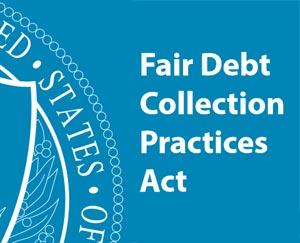Debt Collection: 5 Things You Can’t Do
As a business, it’s important that money owed to you is paid in a timely manner. Your operations and livelihood may very well depend upon it. Because of this, it’s easy to take on a “whatever it takes” mindset to collect debt.
However, according to the Fair Debt Collection Practices Act (FDCPA) of 1978, there are limits all business owners should be aware of. The act was enacted as part of the Consumer Credit Protection Act to eliminate abusive practices in the collection of debts. Under the FDCPA, businesses and debt collectors cannot:
Ask for More than is Owed
Those collecting debts cannot misrepresent the amount a consumer owes, or add on interest, fees or expenses that are not permissible under the law. This means that if an extra fee was not outlined in an original credit or loan agreement, it cannot be requested during the collections process.
Harass the Individual or Business that Owes Money
The following practices are considered harassment:
- Calling repeatedly or continuously.
- Use obscene, profane, threatening or abusive language.
- Calling prior to 8 a.m. or after 9 p.m., or during other times the collector knows or should know are inconvenient.
Threaten Violence
It’s easy to become enraged when you are not paid the money that is due to you or your business. However, resorting to making threats of any kind, or inciting violence if the debt is not paid is illegal. Threats that relate to actions that cannot or will not be taken are also prohibited, this includes threatening to sue, to file charges, to garnish wages or other actions that you do not intend to follow through with.
Inform Others About Your Debt
Unless it is stated in a contract or the individual or business that owes you money has given permission, you are unable to inform others about the debt that is owed. Exceptions to this rule include:
- Your own attorney.
- The creditor, or the creditor’s attorney, if one is involved.
- Your spouse.
- A credit reporting agency.
Harass or Repeatedly Contact Another Party
It may be tempting to contact a third party to find information relating to the location of the individual that owes you money. However, you can only contact that third party once unless you believe the information provided during the first contact was incorrect or false.
Businesses that fail to adhere to the guidelines created by the FDCPA can face fines and other penalties. To protect your business, working with an experienced debt collection attorney, like Michael Hynum of Hynum Law is important. If you have money that you are owed, contact us today to find a path toward remediation that doesn’t put your business’s future at risk.

